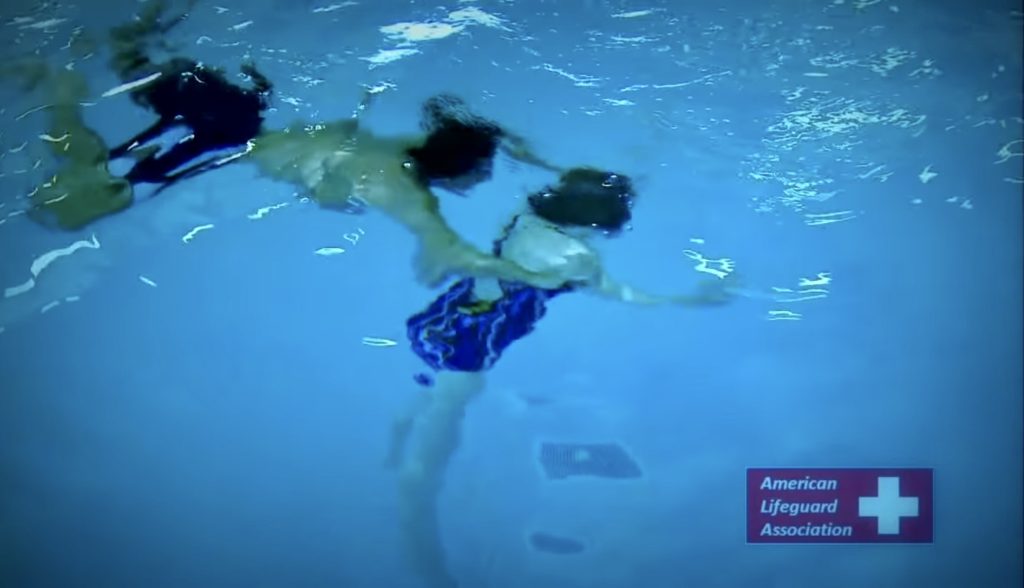How Lifeguard Courses Prepare You for Real-Life Emergencies?

lifeguard courses
Lifeguard training courses are not simply a means of acquiring certification; they are learning programs that provide individuals with the expertise and knowledge needed to deal effectively with emergency situations in real life. According to the American Lifeguard Association (ALA), these are essential for preparing lifeguards to cope with high pressure scenarios effectively and efficiently.
This article looks at how lifeguard courses such as online courses, lifeguarding courses, and certification programs prepare individuals for emergencies, improve their response capabilities and contribute towards water safety.
Comprehensive Emergency Response Training
Basic Skills Taught in Lifeguard Courses
The design of lifeguard courses is such that it aims at offering fundamental skills required in emergency response. Some of these include CPR, First Aid and Advanced Water Rescue Techniques. These trainings cover various scenarios including drowning, cardiac emergencies as well as injuries hence ensuring that lifeguards are ready for any possible situation.
Hands-On Practice And Simulation
Hands-on practice is one of the crucial aspects of lifeguard training. In this regard, there can be simulation exercises whereby trainees respond to mock emergencies. This makes them confident so that they can apply their skills in realistic situations thereby increasing their readiness for actual emergencies.
Scenario-Based Learning
To become professional guards one needs to engage into scenario-based learning which is very much important because it allows them to assume real-life situations which may actually occur on duty regarding saving people’s lives who may have been drowning or other related accidents taking place on swimming pools or any other aquatic platform thus requires quick problem solving skills from the guards’ side.
Advanced Water Rescue Techniques
Rescue Techniques and Lifeguard Certification Courses
Advanced water rescue techniques form part of Lifeguard Certification Courses without which no individual becomes a qualified lifesaver.Therefore,various ways through which people should be saved safely while in danger includes use of systems like rescue tubes ,backboard procedures as well as advanced swimming techniques. Lifeguards are taught to quickly determine the situation and select the most effective means of rescue.
Effective Communication During Emergencies
Clear and concise communication is vital in every emergency situation. In lifeguard courses, trainees learn how to communicate with victims and colleagues in a way that ensures that their instructions are followed correctly.This strategy ensures that the instructions are followed accordingly and that a rescue operation is conducted in a coordinated manner.
Dealing with Multiple Victims
Multiple victims requiring assistance may be involved, for instance, during actual emergencies. These include methods of managing or prioritizing multiple situations for rescue thus ensuring that each victim receives appropriate care based on how severe they condition is.
Legal and Ethical Considerations
Understanding Legal Responsibilities
Emergency response also involves legal aspects which are covered in lifeguard courses such as knowing your responsibilities legally speaking while at the same time understanding key protocols that should be followed hence avoid being liable.In this case,lifeguards need this knowledge so that they will conduct their rescues within their legal limits and also know what rights they have or what obligations arise from them.
Ethical Decision-Making in Crisis Situations
Ethics decision making is also a consideration when it comes to life guard training. On several occasions, rescuers have been put before challenging decisions pertaining to various aspects of life threatening experiences. During training, it is important to make ethical choices with respect to these people’s lives and ensure their safety comes first at all times.
Enhancing Physical Fitness And Mental Preparedness
Physical Fitness Requirements
Lifeguard training requires physical fitness.Actually,lifeguard courses require participants to meet certain fitness standards so as to guarantee endurance and strength required for effectual rescue missions. Regular physical exercises are therefore highly encourage for purposes of maintaining physical fitness levels which are optimum throughout one’s lifetime.
Mental Readiness and Stress Control
Mental preparedness is also important in emergency scenarios. The Lifeguard courses also include stress management techniques and mental training to help candidates remain composed and stay on target during emergencies. This element of coaching enables lifeguards to cope with the psychological strains of rescue situations.
Lifeguard Courses and Career Advancement
Careers with a Lifeguard Certification
After going through lifeguard courses, graduates can choose from different career paths in water safety and rescue operations. Pools, beaches or any other aquatic facilities always need certified lifeguards on duty. Moreover, these skills make them very attractive for employment in such closely related fields as emergency medical services or even safety management.
Furthering Education and Advanced Training
Lifeguard certification is not the ultimate stage of learning process. Many lifeguards may seek additional training and certification to develop their professional careers further. Thus, they have access to advanced rescue techniques among others through continued education opportunities as well as instructor courses enabling them enhance their competencies thus assuming leadership roles.
The Role of Lifeguard Online Courses
Flexibility and Accessibility
Lifeguard online courses provide an option for those people who may lack time for face-to-face trainings because it offers flexibility as well as accessibility options. These online courses still cover similar vital skills like the traditional one but it allows learners to learn at their own speed unlike traditional classes which always taught everyone at a go.Online course therefore becomes handy for people with busy schedules or even those residing in remote areas.
Combining Online with In-Person Training
Many organizations that offer lifeguard certification programs incorporate both online learning platforms together with practical sessions hence being refer to as hybrid programs. In this case all theoretical components are complete over the internet by participants who then proceed to take on hands-on lessons regarding practical skills. This approach ensures that trainees get comprehensive education while accommodating different learning styles.
Finding the Right Lifeguard Course for Your Needs
Choosing a Course Provider
When selecting a lifeguard course, evaluate providers based on their qualifications, reputation, and curriculum. The American Lifeguard Association offers programs that are approve by the industry and ensure quality training. Hence, by examining course providers you will be able to receive the best possible education you desire.
Local versus National Certification
The choice of a local or national certification may depend on your professional goals and location area. A local certificate might be limit to a specific region whereas national one guarantees wider recognition. Therefore contemplating about long-term career intentions as well as job requirement needs in mind is essential before making any decision.
Final Opinion
Lifeguard courses become vital in shaping individuals who can confidently deal with real-life emergencies that happen around them competently. These courses are design such that they offer training opportunities in emergency response, advance rescue techniques, legal and ethical issues, physical fitness as well as mental readiness for rescuers themselves so that they can effectively protect and save lives. Therefore whether you choose traditional face-to-face or online blended trainings options investing in reputable lifeguard training is the first step of becoming an expert water safety practitioner. For more details about Lifeguard Courses & Certifications visit our website at americanlifeguardassociation.com.




